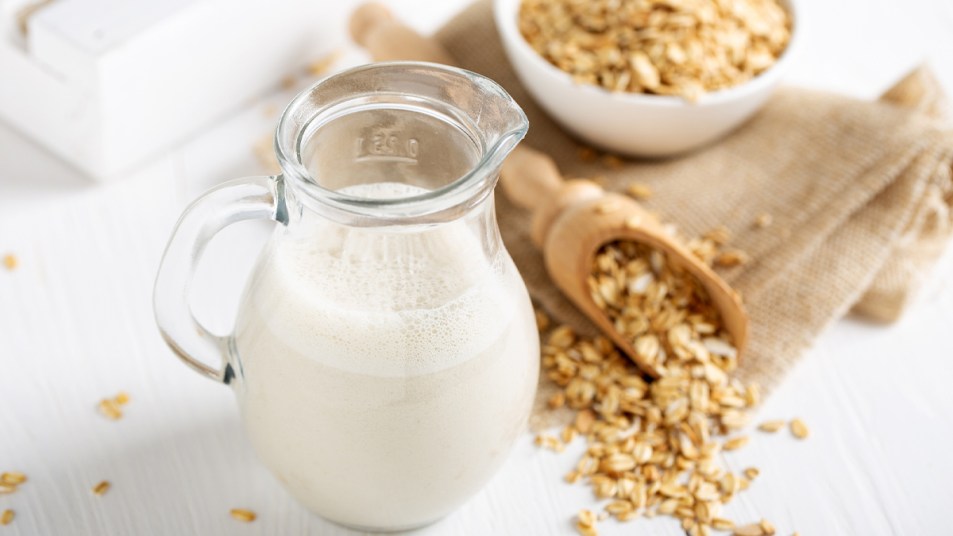3 Dairy Swaps That Will Help Lower Inflammation, Congestion, and Fatigue

Dairy allergies are so wide-spread that as many as 75 percent of us have one and many of us don’t even know it. Unlike lactose intolerance, which occurs when the body doesn’t produce enough of the enzyme lactase to break down lactose (a sugar in milk), dairy allergies occur when the body has an allergic response to proteins in milk. “The body goes into attack mode, secreting histamines to eliminate the proteins,” says Michelle Schoffro Cook, PhD, author of Allergy-Proof Your Life (Buy on Amazon, $13.53). “Over time, histamines cause inflammation, triggering GI upset, congestion and fatigue.” But most people, including doctors, don’t recognize these symptoms as dairy allergies. As a result, Schoffro Cook says 99 percent of sufferers go undiagnosed.
And incidence of sensitivity to the dairy protein casein is on the rise. Some experts say we’re affected more than past generations because dairy cows have gone through genetic changes that have altered the milk they produce. “Modern cows have high levels of A1 casein, a much more inflammatory form than A2 casein, which was present in cows of yesteryear,” says Mark Hyman, MD. What’s more, stress, toxins and overgrowth of bad gut bugs make the body more reactive to casein. And our levels of casein-digesting enzymes fall after age 40, making dairy harder to process. So even folks who consumed dairy products in their youth with no problem at all can find themselves dealing with an allergy later in life.
Women go undiagnosed in part because casein doesn’t always cause the GI upset that’s considered a red flag of dairy intolerance. Instead, body-wide woes (congestion, fog, fatigue, weight gain) are attributed to aging or other causes. Complicating matters: “Casein is an additive in many foods, including those that appear dairy-free,” cautions Elson Haas, MD, author of False Fat (Buy on Amazon, $8.99). Indeed, dairy-derived ingredients are sometimes found in deli meat, toothpaste and even some medications. “So even women who never eat dairy can be affected.”
Feel great fast!
“Avoiding dairy is the easiest fix,” says Dr. Hyman, who suggests eliminating milk, butter, cream, and cheese from your diet for two weeks, then reintroducing it. “If bloat, gas, pain or diarrhea occur, you have a dairy allergy.” Some dairy swaps and alternatives include milk, yogurt. and more made from almonds, soy, oat, or coconut.
Snack on pineapple. The enzyme bromelain in fresh or frozen pineapple breaks down inflammatory dairy proteins to the body is less reactive to them, says Jennifer Zartarian, ND, of the Long Island College Hospital of Brooklyn. Enjoy 1/2 cup of pineapple chunks twice a day as a baseline dose. Then eat more if you’ve consumed a dairy-rich meal. Or take a 200 mg bromelain supplement three times daily. One to try: NOW Bromelain Supplements (Buy on Amazon, $22.18).
Check ‘non-dairy’ products too. Dairy-derived ingredients show up in some unexpected culprits, such as processed meats like sausage and deli ham, chow mein noodles, flavored prepackaged rice and pasta, popcorn, flavored instant coffee, multivitamins, toothpaste, and breath mints. Look for ingredients like casein and its aliases: potassium caseinate, magnesium caseinate, or hydrolyzed casein; whey, lacto-, lactu-, lacta-, curs and caramel color and flavoring.
This article originally appeared in our print magazine, Cure Your Tiredness.
















